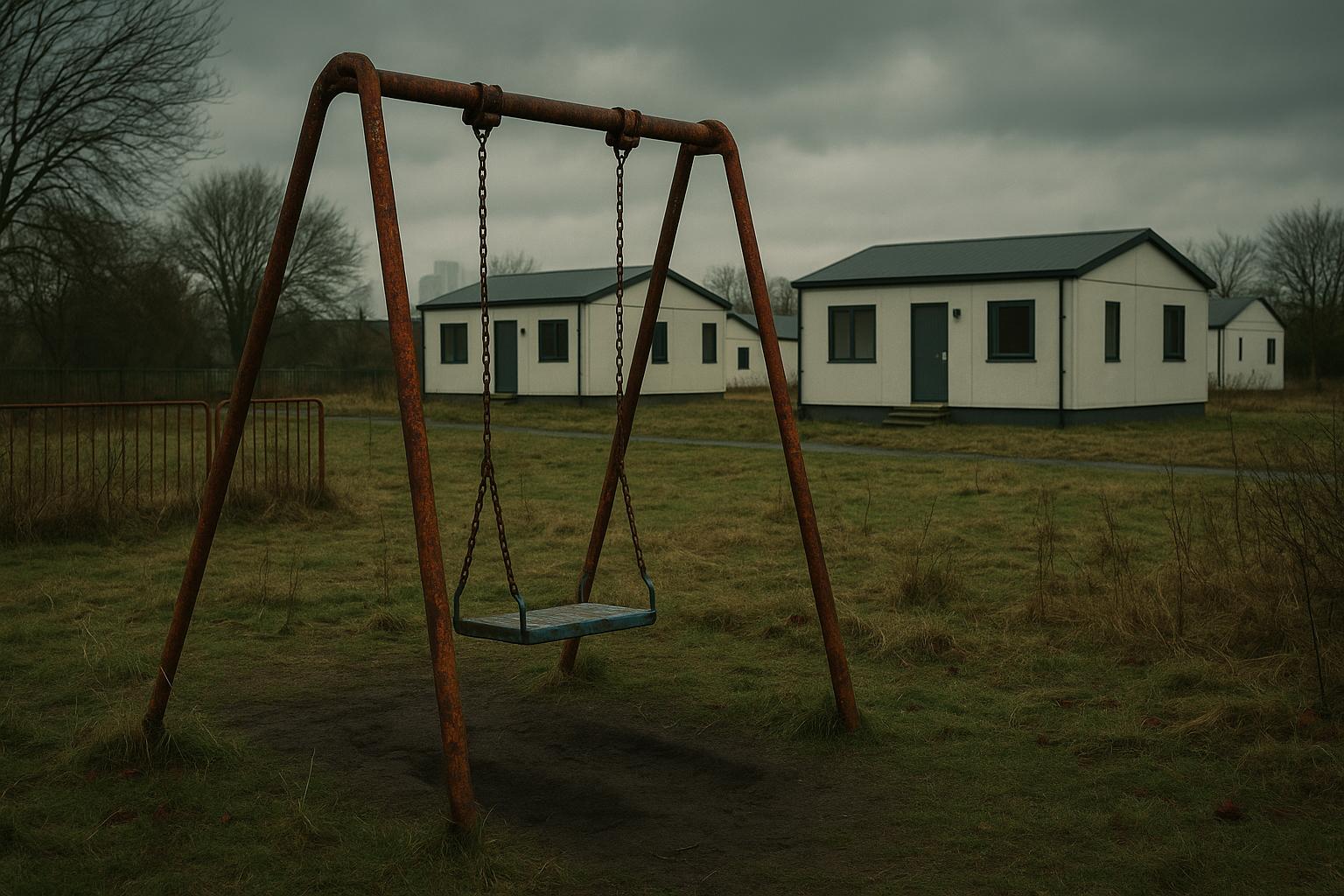A Labour MP has made a pressing call for the UK government to adopt prefabricated housing as a swift response to the worsening crisis of child homelessness in England. Dame Siobhain McDonagh, who has long grappled with soaring homelessness in her south London constituency, described the conditions faced by families in temporary accommodation as “devastating.” She highlighted the acute harm inflicted on children, particularly infants, due to inadequate sleeping arrangements, overcrowding, and poor living environments rife with damp and mould.
Recent government figures reveal a record high of 131,140 households in temporary accommodation as of March, including 169,050 children—the highest since records began in 1998 and an 11.8% increase in just one year. McDonagh’s own research links these harsh living conditions to the deaths of at least 74 children since 2019, with factors such as unsafe sleeping spaces and failure to provide cots for children under two cited as contributing causes. She emphasised that the majority of temporary housing units are ill-suited to family needs, often forcing parents and siblings to share beds in cramped, furnished accommodation lacking proper kitchen access, which she said exacerbates health ailments like asthma and obesity.
Calling for urgent policy action, McDonagh urged parliament to fast-track Labour’s renters’ rights bill aimed at banning no-fault evictions—a significant driver of homelessness. Since the last general election, over 11,400 households have been made homeless through such evictions, with housing charity Shelter estimating that thousands more families could be displaced if the bill’s enactment is delayed beyond 2026.
Despite these immediate pressures, McDonagh underscored that the “real solution in the long term can only be building more social housing.” She argued that prefabricated homes—reminiscent of the post-Second World War “prefabs” known for their durability and efficient use of small plots—could provide a rapid, scalable form of temporary accommodation. This sentiment echoes recent efforts by city authorities: London’s mayor, Sadiq Khan, has invested £11 million in modular homes, delivering up to 200 temporary affordable units across the capital, while Haringey Council is pioneering micro pod housing for rough sleepers.
Complementing these initiatives, private-sector projects like SoloHaus are deploying modular homes designed for quick installation on unused land, offering sustainable and safe dwellings with lifespans exceeding 60 years. Meanwhile, national government schemes have allocated nearly £150 million to build over 1,200 homes for rough sleepers, integrating support services for issues including substance misuse and mental health.
Nevertheless, challenges remain. Analysts from think tanks such as the Resolution Foundation caution that a continuing decline in new housing permits casts doubt on the government’s promise to build 1.5 million new homes by the end of this parliament. Shelter’s campaigners further argue the necessity of a long-term strategy to construct 90,000 social homes annually over the next decade to effectively end the housing emergency and homelessness crisis that sees over 1.3 million households on waiting lists.
The Ministry of Housing, Communities and Local Government maintains that it is investing £1 billion in homelessness services and allocating £39 billion towards social and affordable housing, alongside plans to ban section 21 no-fault evictions. Yet, with government officials and opposition MPs alike recognising the scale of the crisis, the pressure mounts for policy solutions that not only provide immediate relief but also tackle the root causes of England’s housing shortfall.
📌 Reference Map:
- Paragraph 1 – [1], [2], [7]
- Paragraph 2 – [1], [7]
- Paragraph 3 – [1], [2], [7]
- Paragraph 4 – [1], [4], [6], [5]
- Paragraph 5 – [3], [5], [6], [7]
- Paragraph 6 – [1], [7]
- Paragraph 7 – [1]
Source: Noah Wire Services
